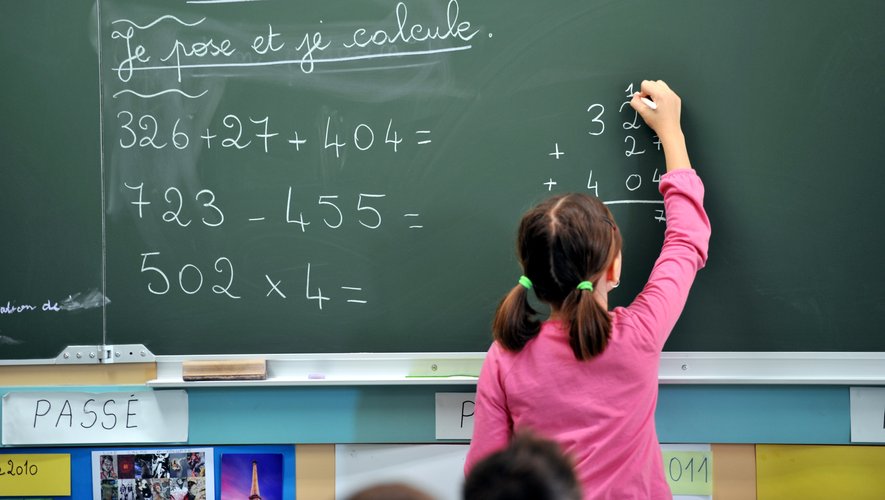National Education Minister Gabriel Attal was alarmed on Monday by “worrying” results in September’s fourth-grade national French and maths tests, promising “strong measures” for secondary school in early December.
The Ministry of National Education announced on Monday evening the results of the national tests of knowledge in mathematics and the French language, conducted in September in CP, CE1, CM1, sixth and fourth grades. For the first time this year CM1 and 4 studentse benefited from a national evaluation common to all institutions. The first trends are worrying in two key subjects of education.
Read also:
REPORTING. “Mathematics doesn’t make sense for students…” We went to a private lesson with two high school girls
In the 6th grade: results very slightly better than in 2017
For primary school, the ministry points out “results at the beginning of CP (…) well below national trends in French, and variable results depending on the area in mathematics (and) results at the beginning of CE1 slightly above national trends in mathematics.”
He also emphasizes the “slight superiority of the results obtained by the schools of the Marseille en grand system”, this huge experimental plan launched by Emmanuel Macron. “At 6e, the 2023 results are generally stable in French compared to 2022, with an increase observed in the reinforced priority education network (REP +). The results increase in mathematics between 2022 and 2023, especially in REP +”, notes the ministry.
On the other hand, it is in the middle school that the most worrisome difficulties arise, even if we do not have data to compare from year to year, since national evaluations are carried out for the first time in these grades. They have enrolled almost 800,000 students in more than 7,000 institutions in the public and private sectors under contract.
Read also:
QUIZ. Take the 4th grade math exams! Will you succeed?
Establish level groups in high school?
“At 4ewe see that during secondary school the level stagnates and even regresses, which means that secondary school fails to reduce the differences observed when entering 6th grade.e. The risk is, if we do nothing, that our faculty will fall apart,” explained Gabriel Attal in an interview for Parisian.
7 According to the minister, the results of students in 4e “they are not satisfactory and are even quite worrying. Slightly more than half of the students do not read enough, and in mathematics, more than half do not master solving problems and geometry.
“The first analyzes show contrasting results depending on the educational sectors. Thus, significant gaps can be observed between students enrolled in priority education and those in the public sector, excluding priority education,” the Ministry’s statement reads. Differences are also evident depending on the social composition of the faculties, especially between public and private ones.
According to the minister, “we must take strong measures to raise the level of French language and mathematics in secondary school”, such as “level groups of French and mathematics. Group size is reduced for the most difficult students.” He promises “strong measures at the beginning of December for the faculties, to come into effect from the next school year”.
Read also:
INTERVIEW. The level of young French in school: “We are moving towards more concrete mathematics”, promises the mathematician
The busiest high school classes in Europe
On the part of the educational unions, we remind you of the reality of today’s faculty. “France has the busiest high school classes in Europe. In 6 years, from 2017, less than 8,381 teachers and more than 21,073 students were employed. 11,543 jobs are missing to maintain the employment rate of 2017,” replied Sophie Vénétitay, Secretary General of SNES-FSU. “We are talking about students who passed the 6the and 5e with particularly burdened classes, reduction of teaching positions, irreplaceable teachers… The institution did not offer them the best conditions to overcome their difficulties,” continued M.me Vénétitay on BFMTV, very reserved at the level of groups that would be the vestibule of inquiry of a college founded in 1975.
“We are already experimenting with groups at certain levels in the 6th gradee with an hour of support for students with difficulties or in-depth study for those who are more capable. But what we observe is a widening gap between a group that limits itself to basic knowledge and another that does much more stimulating exercises,” explains the trade unionist, seeing in the level groups “a renunciation of the idea that we can progress through confrontation and exchange with others.”

